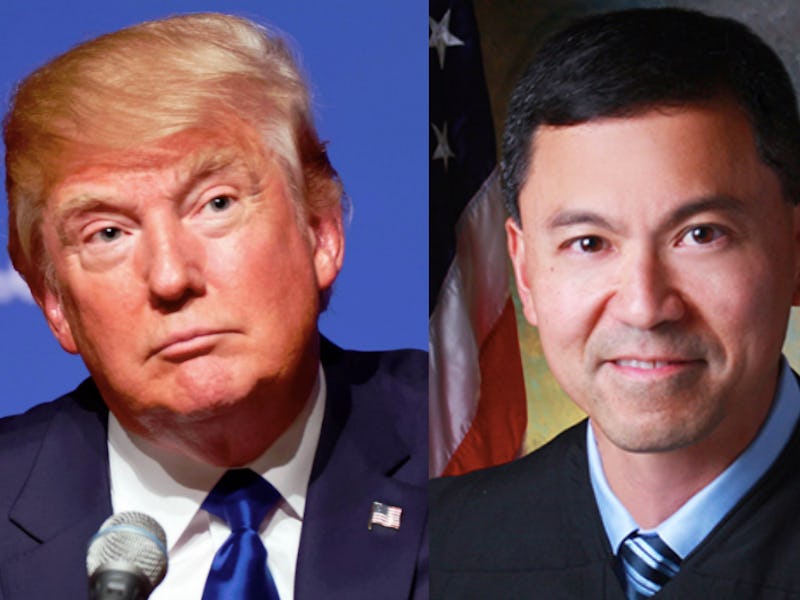Who is the Federal Judge Who Keeps Blocking Trump’s Travel Ban?
He calls it 'absurd.'

On Tuesday, U.S. District Court Judge Derrick Watson blocked President Donald Trump’s latest attempt at a travel ban, claiming the ban doesn’t hold water under federal immigration law.
The restrictions, which were set to take effect Wednesday, would have indefinitely banned most people from the Muslim-majority countries of Syria, Iran, Somalia, Libya, Chad, and Yemen, as well as North Korea, from entering the U.S. The ban also placed restrictions on some Venezuelan members of government and their families. Watson’s order stops the ban from affecting any of the listed countries, except Venezuela and North Korea.
Watson’s decision was in response to a lawsuit filed by the state of Hawaii, two Hawaiians with affected relatives, and a Honolulu-based mosque.
This is not the first time that Watson has blocked a Trump-backed travel ban. Hawaii, along with Maryland, were responsible for blocking the previous version of the ban back in March. The case was scheduled to make its way to the Supreme Court by mid-October, but it expired and was replaced by the latest ban.
“The illogic of the government’s contentions is palpable,” Watson said of the second ban, back in March. The first version, concocted as an executive order in January, was partially blocked by a Washington state federal judge.
Watson was nominated by President Barack Obama for the District of Hawaii in 2013. He was unanimously confirmed to his post with a vote of 94-to-0.
Watson was born in Honolulu in 1966. He graduated from Harvard Law School in 1991. He’s held a number of judicial positions; he was an assistant U.S. attorney in the Northern District of California as well as the deputy chief of the civil division. He was also the assistant U.S. attorney in Hawaii, and the chief of Hawaii’s civil division following that. He also did a stint with the Army, as a U.S. Army Reserve captain, JAG Corps, from 1998 to 2006.
In Watson’s most recent dressing down of Trump’s travel ban (named EO-3), he made reference to the recent NFL debacle in his 40-page ruling.
Professional athletes mirror the federal government in this respect: they operate within a set of rules, and when one among them forsakes those rules in favor of his own, problems ensue. And so it goes with EO-3.
He went on to explain how the ban was far too universal in its nature.
The generalized findings regarding each country’s performance do not support the vast scope of EO-3 —in other words, the categorical restrictions on entire populations of men, women, and children, based upon nationality, are a poor fit for the issues regarding the sharing of “public-safety and terrorism-related information” that the President identifies.
He also mentioned that the ban impacts foreign nationals who may not have significant ties to the banned country, “such as those who left as children or those whose nationality is based on parentage alone.” Furthermore, the ban doesn’t account for nationals of non-banned nations who might have concerning ties to the listed nations, as outlined by the Trump administration. “This leads to absurd results. EO-3 is simultaneously overbroad and underinclusive,” Watson said.
Watson’s order is a temporary stop on the ban, while a lawsuit over the ins and outs of the legality of the ban will ensue in coming months.